On the road to recovery
ANN RUPPENSTEIN
As they begin the first stages of tourism since the global pandemic brought travel to a halt, representatives from Europe and Great Britain discuss the opportunities and challenges ahead, how they shifted strategies to keep travellers engaged and the role tour operators and agents will play in the journey forward.
Sigríður Dögg Guðmundsdóttir
Head of Visit Iceland
It is difficult to promote a destination when people can’t travel because of travel restrictions so we have had to adjust. We wanted to give people something to enjoy and dream about during this time so we introduced My Iceland Dream List on our social channels. The First lady of Iceland, Eliza Reid and Ragga Ragnars (the actress who played Gunnhild in Vikings) and more people shared their favourite locations in Iceland and we have had very good response to that.”

How do destination marketing organizations and tourist boards promote their respective countries when travel comes to a standstill? They adjust and find new ways to drive engagement.
In the aftermath of travel restrictions, Sigríður Dögg Guðmundsdóttir, Head of Visit Iceland, says they shifted strategies to focus on giving would-be travellers something to dream about with the My Iceland Dream List campaign on social media.
“The First lady of Iceland, Eliza Reid and Ragga Ragnars (the actress who played Gunnhild in Vikings) and more people shared their favourite locations in Iceland and we have had very good response to that,” she tells Travel Courier. “We have also shared interesting news and inspiration from Iceland through newsletters and press releases.”
With international travel restrictions set to ease up on June 15 in Iceland (travellers will be given the choice between a test for the virus on arrival or a two-week quarantine), the destination expects a rise in remote and isolated escapes, and is recommending visitors travel to its lesser visited regions with sparse landscapes and fewer people, which will help spread tourists and uphold social distancing.

“The biggest challenge we face is perhaps uncertainty because we are trying to navigate in uncharted waters,” says Dögg Guðmundsdóttir. “During the last weeks and months we have focused on communicating the situation in Iceland to relevant groups and we have been in close cooperation with government officials. In Iceland we have been fortunate that the fight against COVID-19, led and fronted by health officials, has been successful to the point that it has drawn world attention… We look forward to be able to welcome visitors again in a safe and responsible way as travel restrictions are starting to ease in other countries.”
Travel agencies and tour operators are among the groups Visit Iceland has focused its efforts on through regular newsletters and practical tools such as the Iceland Specialist Program and webinars about the seven different regions of Iceland.
“With more insight to the destination through various means — webinars, specialist program to mention a few — the industry will be able to enhance their knowledge,” she adds. “People will probably be more cautious when travelling, wanting to know what countries have been doing and what they are doing to keep their guests safe. These are questions that the travel industry needs to prepare for.”
Michael Gigl
Director, North America, Austrian Tourist Office
Travel truly has the power to build bridges between people, between cultures. We have suddenly, and painfully, learned that the opportunity to travel, especially internationally, is of tremendous value that shouldn’t be taken for granted. And we have just witnessed the tremendous global job losses, and economic suffering that happens when travel stops. But it is also becoming ever more obvious that travel is only sustainable when done responsibly.”

Although there is no date yet for when Canadian travellers can visit Austria again, the destination is currently experiencing the re-start of travel and tourism as its borders with neighbouring countries are re-opening across hotels, restaurants and attractions.
“Our social, civic, as well as cultural life is returning fully,” Michael Gigl, Director for the Austrian Tourist Office in North America tells Travel Courier. “Travel truly has the power to build bridges between people, between cultures. We have suddenly, and painfully, learned that the opportunity to travel, especially internationally, is of tremendous value that shouldn’t be taken for granted. And we have just witnessed the tremendous global job losses, and economic suffering that happens when travel stops. But it is also becoming ever more obvious that travel is only sustainable when done responsibly.”
While there are many reasons to visit Austria, he says the destination wants to make sure travellers feel confident and secure about their decision to visit.
“Austria is providing an additional layer of safety and security for our guests, as the Austrian government is providing extensive and regular COVID-19 testing to staff of the hospitality industry, at government expense,” he says. “The goal is to regularly test up to 65,000 hospitality staff, with a focus on those that provide direct service and interaction with our guests. This ambitious program is currently being phased in, and should be running fully by July.”
Looking forward, he says the destination feels that travel advisors will play an important role in the return of international, especially for the long-haul market.
“Their deep inside knowledge of a destination, and personal connections will come a long way in allowing their clients to make fully informed travel decisions, and possibly alleviate any lingering uncertainties,” he states. “We, at the Austrian Tourist Office, are here to assist, and offer a variety of educational and information tools.”
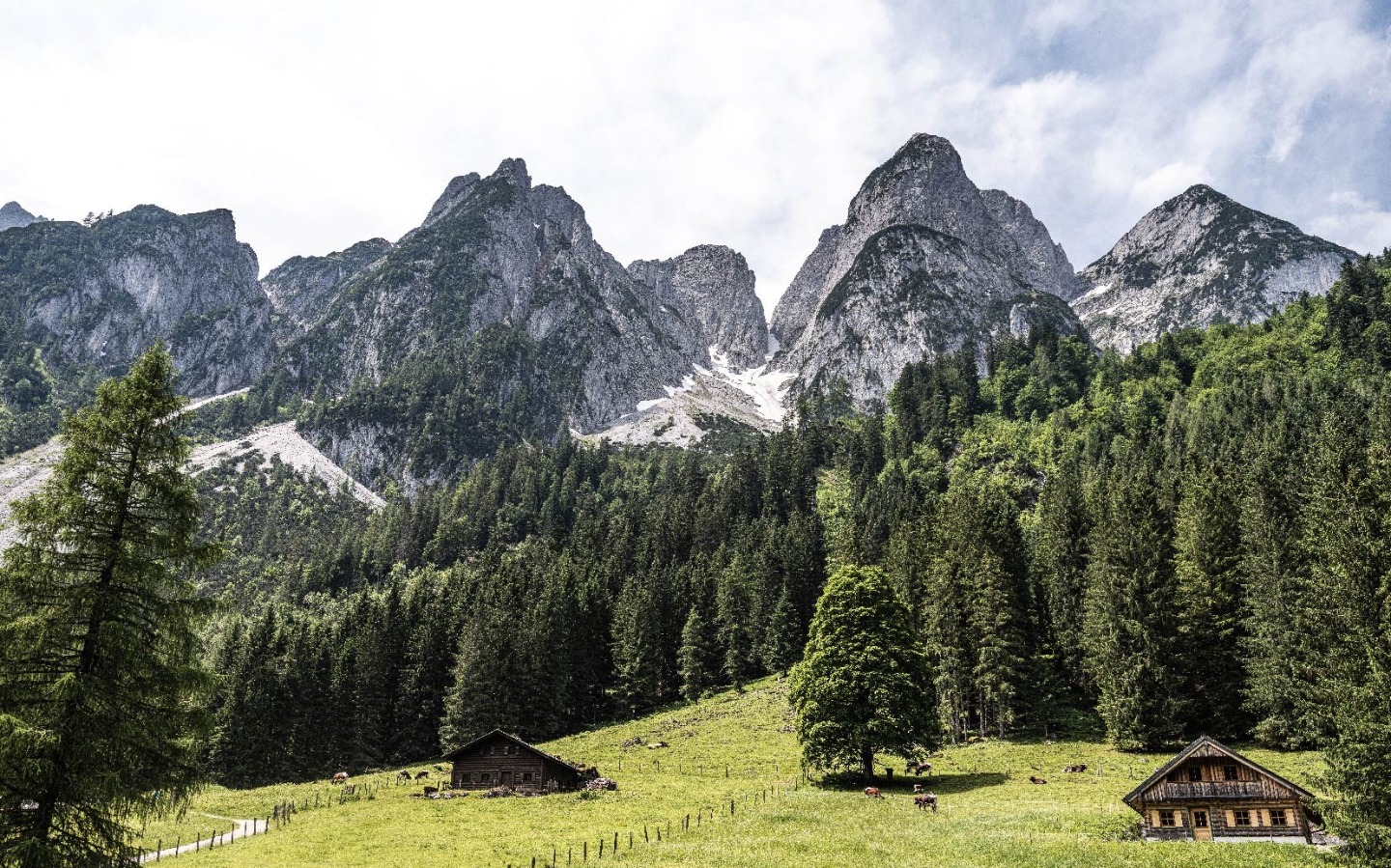
Photo courtesy Austrian Tourist Office / Kara Mercer
He also expects a wave of innovation in tour design, especially for individuals and small group travel, and is eager to work with industry leading tour operators and tour designers to make it happen.
“The COVID-19 epidemic is also providing us with an opportunity to reflect on what really matters to us when we travel,” he notes. “I believe that travel is most enjoyable when it provides a deeper connection with the places visited, and I trust that travellers will seek out ever more meaningful forms of travel, trips that provide true insights into the places and cultures visited. Those tour operators and travel suppliers that make those meaningful experiences possible will come out far ahead in the future.”
For Gigl, one of the things that sets Austria apart is the fact that it has always been home grown, supporting local communities.
“The vast majority of our hotels and pensions are family owned and operated,” he says. “Our most visited attractions are either a legacy of our over 1000 year history, or the result of local planning and ingenuity. Development decisions remain in the hands of local communities, and not faceless private equity funds. We are proud of our leading role in sustainable and organic agriculture. And our capital Vienna has consistently been judged as one of the best places in the world to live. And just weeks ago Vienna was crowned the greenest city in the world by the Canadian consulting firm Resonance.”
As destinations and travel providers, he believes those in the industry have responsibilities to communities and travellers alike.
“Austria takes those responsibilities very much at heart and strives to offer a tremendously enjoyable, meaningful and safe travel experience, for the benefit of all,” he says. “Austria has a tremendous variety of experiences to offer. Lonely Planet calls Austria ‘famously beautiful,’ and you can experience this beauty in its imperial cities, its stunning art, architecture and music, as well as the spectacular, and so easily accessible landscape, mountains, lakes and rivers. Nowhere else can you find world-class culture and nature experiences available so close together.”
Maria Elena Rossi
Marketing & Promotion Director, ENIT, Italian National Tourist Board
For the image of our country, it is vital to get rid of the incorrect image of a country that is contagious for Europe. This is the time for walks, to rediscover natural outdoor paths that call for small groups. It will also be the time for more exclusive experiences to make it easier to take all the necessary precautions. It has always been a sustained battle with ENIT and the agency’s three-year plan includes a distribution of flows over a period of years and developing the promotion of less well-known spots.”
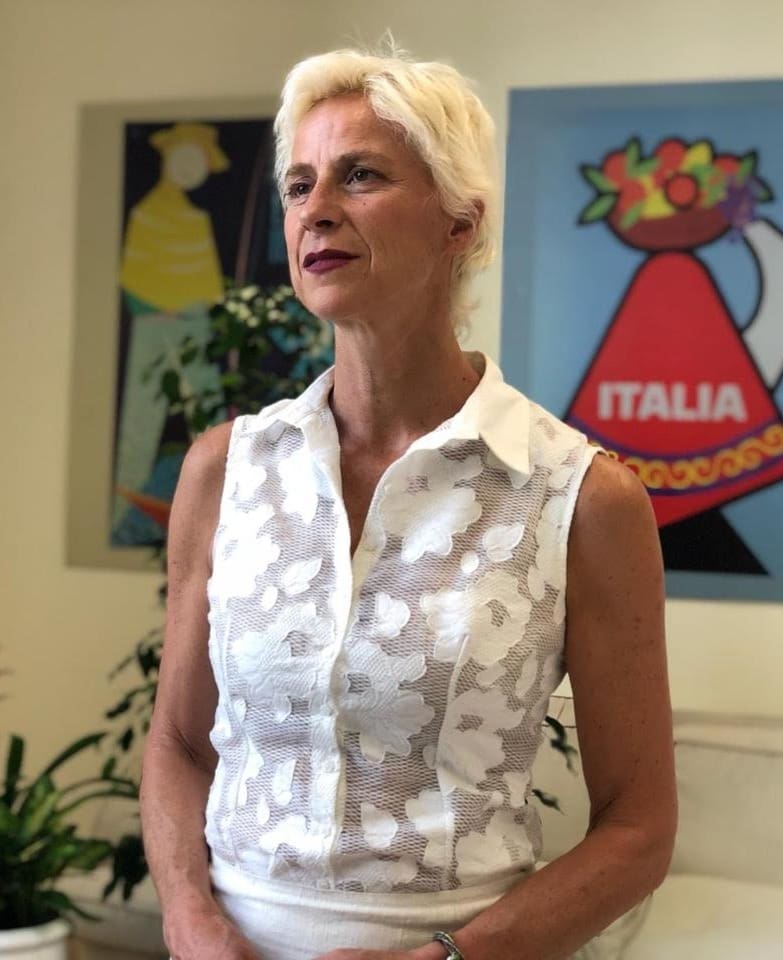
Picturing the future of travel post COVID-19, Maria Elena Rossi, Marketing & Promotion Director at ENIT, the Italian National Tourist Board, sees an opportunity to deal with the topic of sustainability and a new way to offer and experience tourism that’s greener and slower.
“The contingency provides an opportunity to everyone operating in the sector to raise their quality standards and enact the renewal and adjustment that the sector needs with the advancement of environmental innovation and policies,” says Rossi, who based in Rome at head office. “Many places that had to deal with flows of over tourism have the opportunity to direct those flows into less well-known areas. We are confident that everything will start up again, with more strength, and it will be a call for renewal and to positioning with new energy on the markets.”
Normally Italian tourism is divided into 50% foreign tourists, including many who arrive by car, and 50% Italian visitors. This year they expect a greater rate of domestic tourism, which will signify the first signals of a restart.
“For the image of our country, it is vital to get rid of the incorrect image of a country that is contagious for Europe. This is the time for walks, to rediscover natural outdoor paths that call for small groups. It will also be the time for more exclusive experiences to make it easier to take all the necessary precautions. It has always been a sustained battle with ENIT and the agency’s three-year plan includes a distribution of flows over a period of years and developing the promotion of less well-known spots,” she says.
The agency is also looking at ways to promote its key cities, which have always produced the highest number of international tourists, in different ways.
“We will start by listening to entrepreneurs, who have always experienced firsthand the tourist trends in the city. They must always feel that the institutions are by their side. But above all we must continue to believe in ourselves, believe in tourism as a primary source of economic well-being,” she says. “Probably at the international level the first tourist sector to start up again will be those connected to affluent tourists and the luxury sector, which ensures a more rapid restart. ENIT, specifically, has developed a data and market monitoring dashboard to support businesses, operators, and other institutions to become aware of trends in real time and allow proper re-planning of promotions to support the marketing of businesses to be able to restart in the most effective manner.”
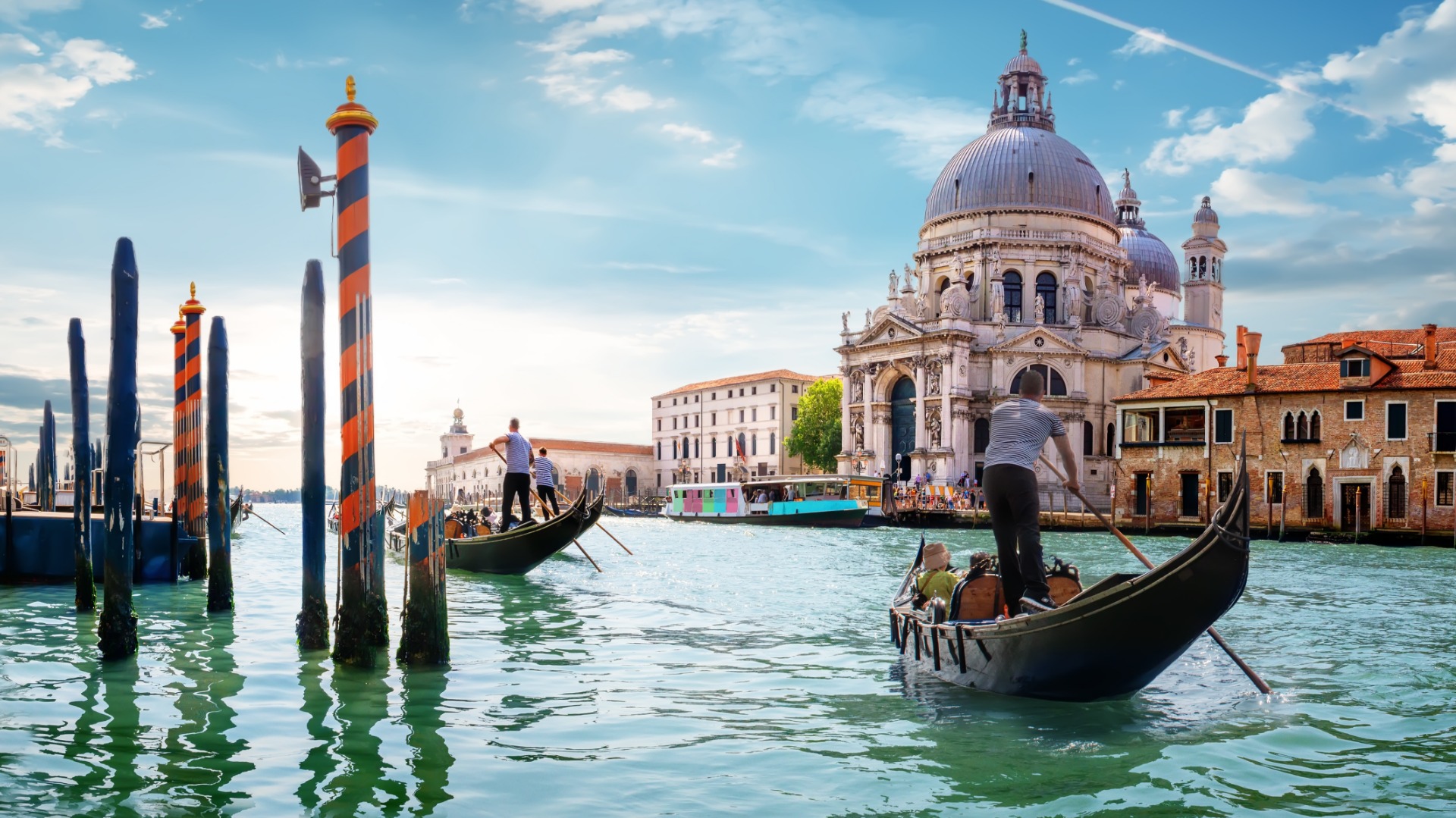
With a mix of spas, seaside and city destinations, the arts, luxury, fashion and design, she’s confident tourism will restart with more grit.
“The Italian lifestyle will come back stronger than before,” she notes. “We will want everyone’s collaboration. More than ever at this time, Italy and the world need a sense of belonging and responsibility: each of us is in the hands of the behaviour of others. The support and involvement of all Italian citizens and travellers will be fundamental, and can tell a story, that there is something lovely in the less well-known areas, a storytelling that extends to everyone. The quality of the offer will be further enhanced with travel planning, in all its details, that complies, without deprivations, with the new rules dictated by COVID.”
With the highest number of UNESCO sites, a total of 55, she says restarting “Bel Paese” —the beautiful country — will come by reflecting the traditional values of art, good living, and sustainability.
“History, tradition and cultural heritage are still a strong tourist motivation bringing visitors to the peninsula, and even at this time, it will surely contribute to the restart. The crisis will offer an opportunity to appreciate the attractiveness of the peculiarities that make Italy unmistakable and famous throughout the world, giving exclusive access to places that are less well-known and publicized, where one can experience the mystery of the origins and traditions of our country, which fill the timeless pages of history,” she continues, adding that its heritage parks will also be key to spreading new vision of slow and eco-sustainable tourism. “Following tasteful itineraries, far from the paths beaten by mass tourism, to then be directed toward the paths of the masters to discover the works of the geniuses of science and musicians that are a part of world history. Living ‘all’italiana,’ that is, the lifestyle and fashion, will be one of the trampolines for the restart.”
Ina Rodin
Director North America, Croatia National Tourist Office
The crisis has shown the importance of tourism for many economies, namely its deep connection and impact on other segments of the economy. It is certain that tourism, especially in this first period after the corona crisis, will differ in the way the processes will be executed, because the emphasis will be on health, safety and security measures that will enable us to bring this pandemic to a halt. However, we understand that people can hardly wait to travel and this is something we all must have in mind when building the future of tourism together, while taking even more care of environmental and sustainable development.”

With the destination continuing to open up for travel from many European countries yet not for all international markets, Ina Rodin, Director North America for Croatia National Tourist Office, says its promotional efforts are twofold.
Currently, the campaign “The Vacation You Deserve is Closer Than You Think” is being run across markets such as Slovenia, Austria, Germany, Hungary, Slovakia and Poland, which have easy access to the destination, while a user-generated content campaign is being run across social media for long-haul destinations under the slogan “Enjoy the View from Croatia.”
Although Croatia has recorded a significant decrease in tourist traffic, namely a cumulative decline of about 70%, which will have a negative impact on the revenue side, she says they are already seeing interest in 2021 from many travellers who may not be ready or able to visit this year, which they find encouraging.
“Companies in the tourist sector are still coping well with the crisis, working together with the support of the government, they have adopted packages of measures and assistance provided to offset the negative economic impact during this downturn,” Rodin tells Travel Courier. “This has aided in preserving jobs and the liquidity of the companies, which was the strategic goal of the measures. We are approaching the high season of summer, during which, due to the excellent epidemiological situation in our country, we expect to generate some tourist traffic and resume some tourism within a realistic framework.”
As with other members of the EU, she notes it’s too early to say when Croatia may be open to Canadian travellers, but expects to have more information on June 15.
“Prior to the pandemic, for the past several years, Croatia has recorded a continuous increase in arrivals and overnight stays of both domestic and foreign tourists,” she points out. “In 2019, based on data from our visitor registration system, eVisitor, 109 million overnight stays were recorded, which is 2.5 percent more than in 2018. Positive trends in tourism in Croatia were also confirmed by financial indicators. Total revenues in tourism from foreign guests in 2019 exceeded 10 billion euros, and tourism generates about 20% of GDP, while it is estimated that tourism employs more than 150,000 people in Croatia. Given these numbers and the importance of tourism for the country, great effort will also be placed on regaining guests over the longer term and keeping Croatia top of mind for 2021.”
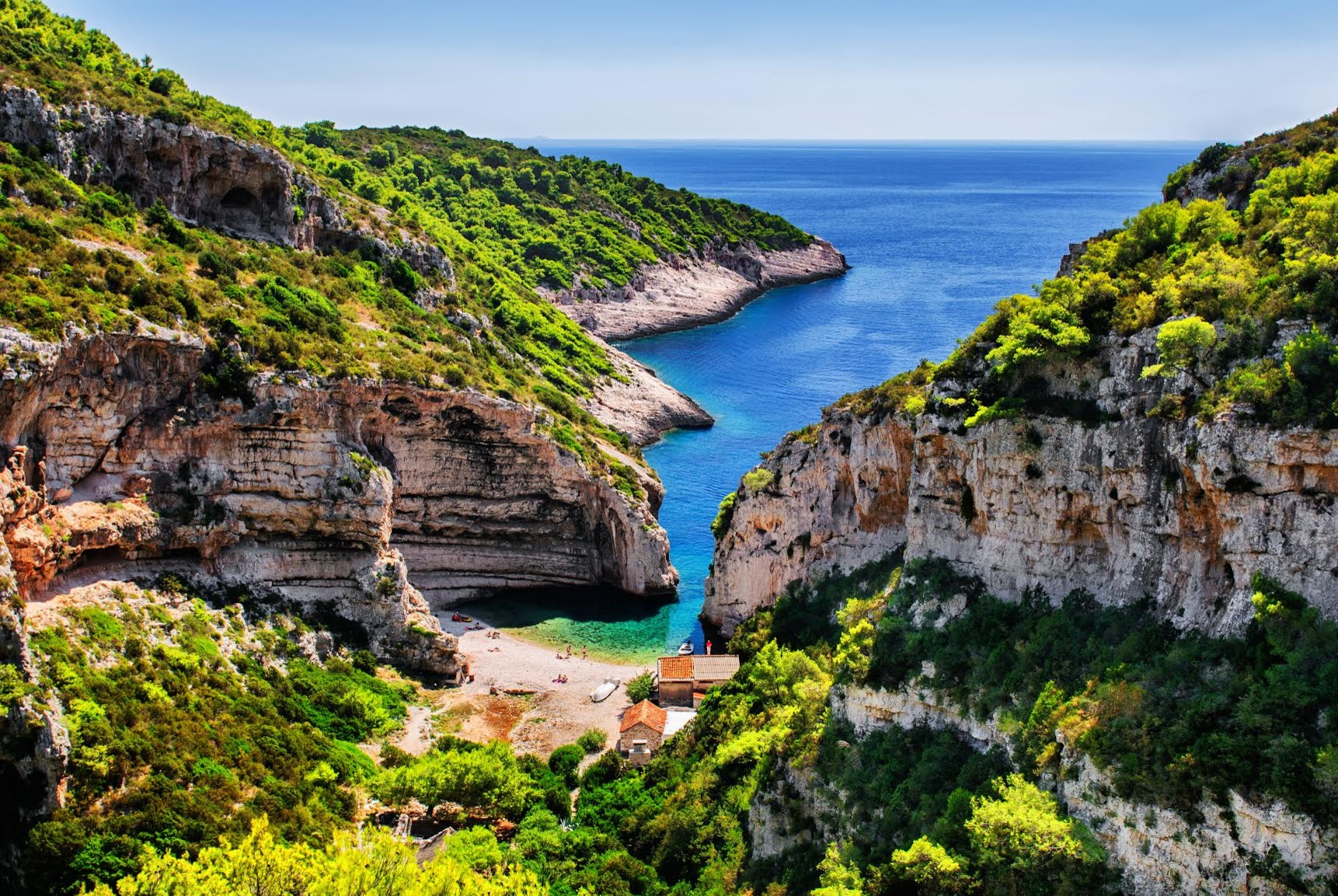
Photo of Stiniva Beach on the island of Vis by Aleksandar Gospic.
As for challenges, she predicts the reintroduction of flights and regaining numbers to pre-pandemic levels will be a much longer process.
“In the near-term we will see the industry adapt to the need and emphasis on health, safety and security measures, while tourism services and products will adapt to reflect this,” she says. “Airlines have seen major disruption and this will surely have a ripple effect across the entire industry, while we as a tourist board have seen a definite increase in the need for accurate information dissemination and a greater need for formal/official information to be available to potential visitors.”
She says the CNTB has held and will continue to hold webinars across key markets to engage with the travel trade. Overall, she says the tourist board is confident that the tourism market will adapt, albeit that the speed of recovery to pre-pandemic volumes is difficult to accurately foresee.
“The crisis has shown the importance of tourism for many economies, namely its deep connection and impact on other segments of the economy. It is certain that tourism, especially in this first period after the corona crisis, will differ in the way the processes will be executed, because the emphasis will be on health, safety and security measures that will enable us to bring this pandemic to a halt. However, we understand that people can hardly wait to travel and this is something we all must have in mind when building the future of tourism together, while taking even more care of environmental and sustainable development,” she says. “This has also provided opportunities to develop new and innovative services and tourism products, from promotion of more individual and small group activities, to digital products including contactless check-in and similar digital alternatives for guest services.”
Keith Campbell
Market Manager – Canada & Golf, VisitScotland
Where we’ve had over-tourism and concerns for carbon emissions reduced due to the COVID-19 crisis, we’ll see a shift towards visitors wanting to support communities and destinations, and businesses that are demonstrating their commitment to conservation, the environment, re-wilding and cultural heritage preservation. Creating meaningful connections between visitors and hosts is one of the characteristics of responsible tourism and we see tourism as part of the solution to a sustainable and successful future.”

After the UK entered lockdown on March 23, Keith Campbell, Market Manager – Canada & Golf for VisitScotland, says the organization decided to pause all destination marketing to focus on understanding the impact of the coronavirus. This included cancelling its biggest travel trade exhibition, VisitScotland Expo, for which they were due to host buyers from across the globe.
“We recently published a phased market recovery strategy to help reopen Scotland to visitors and like most countries will be focusing on the local and domestic market first, with international arrivals completing the route to recovery,” Campbell tells Travel Courier. “While some international visits may be expected in 2020, the likelihood of wider recovery will be most probable in 2021.”
Being mindful of how much this crisis has impacted different countries across the world, Visit Scotland’s first piece of content focused on sending a message of support and hope to travellers around the world.
“This was our Absence Makes The Heart Grow Fonder video that aims to assure Scottish fans that, whilst they can’t visit just now, we will still be here with a warm welcome for them when the time is right,” he says. “In its first two weeks, it had more than a million views from across the world.”
For the recovery of the tourism industry in Scotland, Campbell says it’s important to work together as one to ensure the best possible outcomes for the whole of the visitor economy.
“We will continue to support businesses and help the tourism industry become an economic and social powerhouse again,” he says. “There is no doubt this is an opportunity to reset tourism and look at how we can take it forward in a responsible manner. Local management will be as important as local promotion. Central to that will be communities — they are the people that are both affected and benefit from tourism. It is this balance which will be the biggest challenge and we have to get right to ensure the experience is positive for everyone – but still bring jobs, enhance well-being and develop economic growth.”
Moving forward, he says Scotland’s natural resources are hugely important to communities and visitors alike and should be protected.

The Fairy Pools, Isle of Skye. Photo courtesy: VisitScotland.
“Another challenge is knowing when we will be able to receive international travellers as we know this will be the last phase in the recovery plan to be executed,” he says. “While we at VisitScotland can keep Scotland top of mind with inspirational marketing messaging, we will not be able to promote a ‘book now’ message until we know it is safe for visitors to travel and our communities across Scotland are ready to receive visitors. We are relying on external factors such as border controls and air routes being operational.”
Although tourism has been devastated globally, he says Scotland is still a highly desired country to visit by Canadians.
“Our travel trade partners still tell me that they have clients wishing to visit Scotland when it is safe to do so,” he adds, noting that the organization continues to value travel agents. “The insight I see from the travel industry in Canada is that travel agents and tour operators will become more sought after not only for their expertise in destinations and planning vacations but also for their knowledge on the complexities of travel insurance and handling re-bookings and cancellations should that ever need to happen.”
In order to come out stronger than before, he says collaboration, communication and strategic partnerships are going to be key.
“Ensuring that there is a collaborative approach to destination development and promotion will be key,” he says. “Since March, VisitScotland has worked with agency and industry partners on a joint recovery strategy ensuring that we do everything in tandem to guarantee the safe reopening to visitors both from closer to home and those in countries around the globe. VisitScotland remains committed to the Canadian market and our recovery strategy includes continued collaboration with our strategic partners, such as the Canadian airlines, to ensure we can support the reinstatement of the direct air routes to Scotland when we can.”
Although travel will not be the same as before with physical distancing measures and an increased emphases on hygiene, he’s confident the industry can be more sustainable on the other side.
“We’ll need be looking at what tourism delivers in terms of the future for communities and the environment. Where we’ve had over-tourism and concerns for carbon emissions reduced due to the COVID-19 crisis we’ll see a shift towards visitors wanting to support communities and destinations, and businesses that are demonstrating their commitment to conservation, the environment, re-wilding and cultural heritage preservation,” he says. “Creating meaningful connections between visitors and hosts is one of the characteristics of responsible tourism and we see tourism as part of the solution to a sustainable and successful future.”
Heli Mende
Head of Visit Finland North America/ Commercial counsellor
We are seeing a trend of more sustainable and responsible travel behaviour. Finland, for example, did not suffer from over tourism before the crisis in a similar manner as some other destinations but now in this situation the socio economical aspects of sustainable travel are more important than ever as we must ensure that local businesses will survive. Guiding travellers to buy local products can help.”
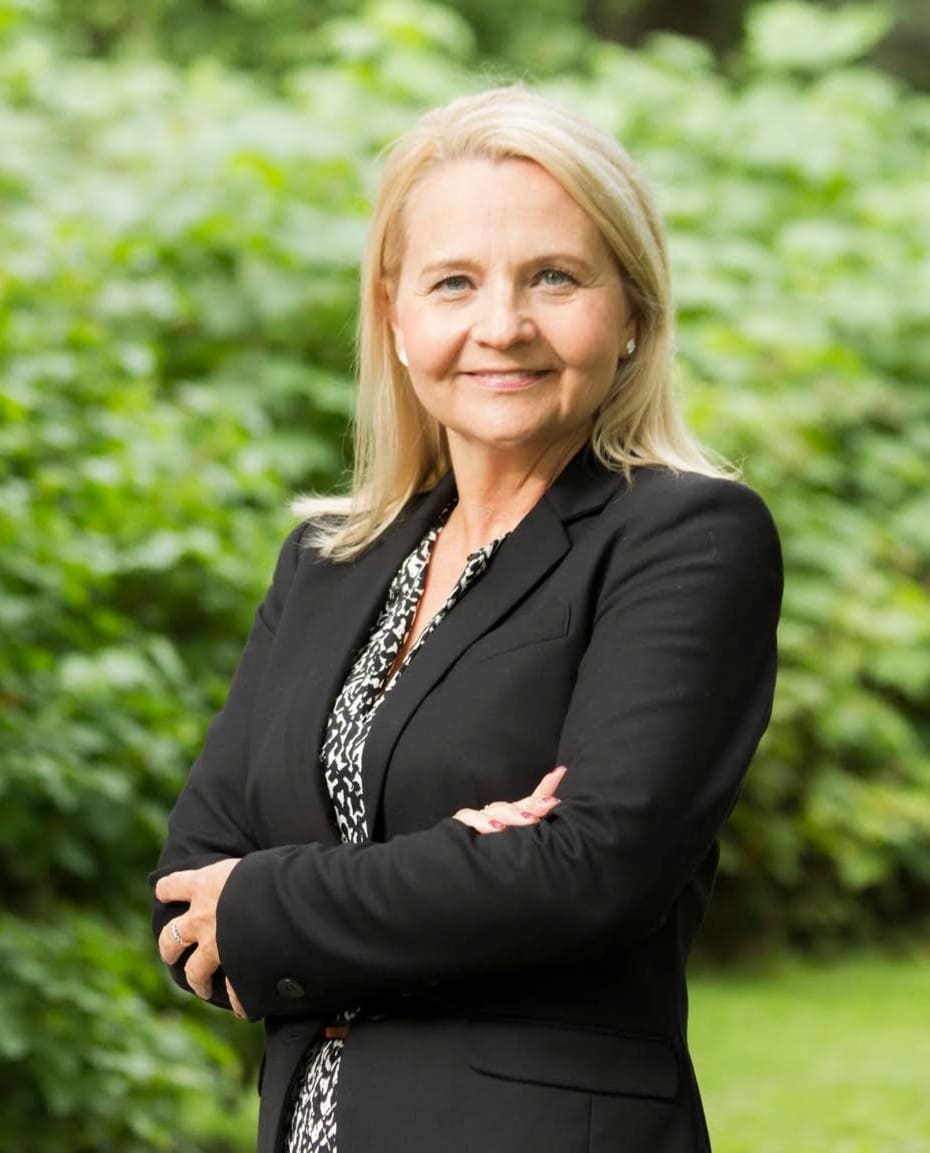
One of the biggest obstacles on the road to recovery for Heli Mende, Head of Visit Finland North America, will be overcoming the uncertainty amongst travellers around if and when it is safe to travel internationally.
“Communication is always important, but in times like these, sharing information is crucial. So is being transparent, honest and working together,” Mende tells Travel Courier. “As tourist boards, we need to know what the operators and agencies are doing and they need to know what is happening in the destinations; if there are services that are no longer available, what are the health safety protocols and cancellation policies.”
With a lot of uncertainty around what the future of travel looks like, she says there are lots of questions left to answer.
“A big question is how the traveller will behave in the future, for example, will they still travel in bigger groups and if they do, what procedures are required? Or if the focus will be on FIT travel, what specifically, for example, do Finnish suppliers need to know?” Mende says. “At this point it looks like that the affluent FIT travellers will be the first ones to travel to Europe. I believe that we all need to be very agile and hear the sentiments of the end customers and try to adapt to those to be able to do best we can to provide a safe, memorable and enjoyable travel experiences.”
As a new normal begins to emerge, she foresees a shift towards more sustainable and responsible travel behaviour.
“Finland, for example, did not suffer from over tourism before the crisis in a similar manner as some other destinations but now in this situation the socio economical aspects of sustainable travel are more important than ever as we must ensure that local businesses will survive,” she says. “Guiding travellers to buy local products can help.”
Looking forward, she says airlines will play a crucial role in connectivity when restrictions are lifted so close communication will be key.
“Privacy will be the new black for the time being and hygiene protocols are expected from all suppliers,” she says. “Communicating about those is imperative to ensure that the end customer has as much information as possible to make an educated decision of their travel experience.”
To that end, Visit Finland has launched a recovery team that is working closely with its stakeholders in Finland, in-market representatives and the travel trade in each focus market.
“With this situation, we are all in the same boat and must do whatever we can do to support each other working in the travel trade,” she says. “It has been great to see that many travel agents have been able to use this time to learn about new destinations and to prepare themselves for the time after the crisis. I personally would be very happy to hear what information is required and how we can be more helpful.”

Photo courtesy: Thomas Kast and Visit Finland.
With a surge in interest for educational materials and webinars by North American travel professionals, she says they have already have started joint Nordic level webinars and plan to launch a webinar series for Finland’s four major regions: Helsinki region, Coast and Archipelago, Lakeland and Lapland.
Like most destinations, Visit Finland has been focusing on providing “Dream now, travel later” information for both travel professionals and consumers. Visit Finland launched “Rent A Finn Goes Virtual” campaign, www.rentafinn.com, which was based on last year’s successful Rent A Finn campaign.
“Our goal has been to share with the international audiences why we ourselves think that Finland has been ranked as the happiest country in the world three years running,” she says. “This year we now have invited audiences around the world to visit Finland through live sessions with Finnish virtual guides. Each session has a different theme, showcasing for example Finnish sauna traditions or how to enjoy Finnish nature or learning about cooking with wild food.”
While there is no date yet for when Canadians can visit, travel agents can access more information through specific websites for travellers and travel trade to get the latest updates about travelling to Finland during and after COVID-19.
“These are trying times for travel professionals and a lot of support is needed,” she says. “But we just need to try and remember that people are anxious to travel and travel trade professionals are needed to curate the best possible post corona virus travel experiences.”
Pascal Prinz
Director Canada & Trade Manager Central USA, Switzerland Tourism
Trust, human connection and value will be our new post-COVID 19 guiding realities. I’m convinced that travel advisors and tour operators are more important than ever. They will be the leading force in the post-COVID 19 world. With so much uncertainty, advisor’s expertise and connections are crucial in helping put future travellers at ease and stimulate our industry’s recovery. Advisors help their clients when they are in need.”
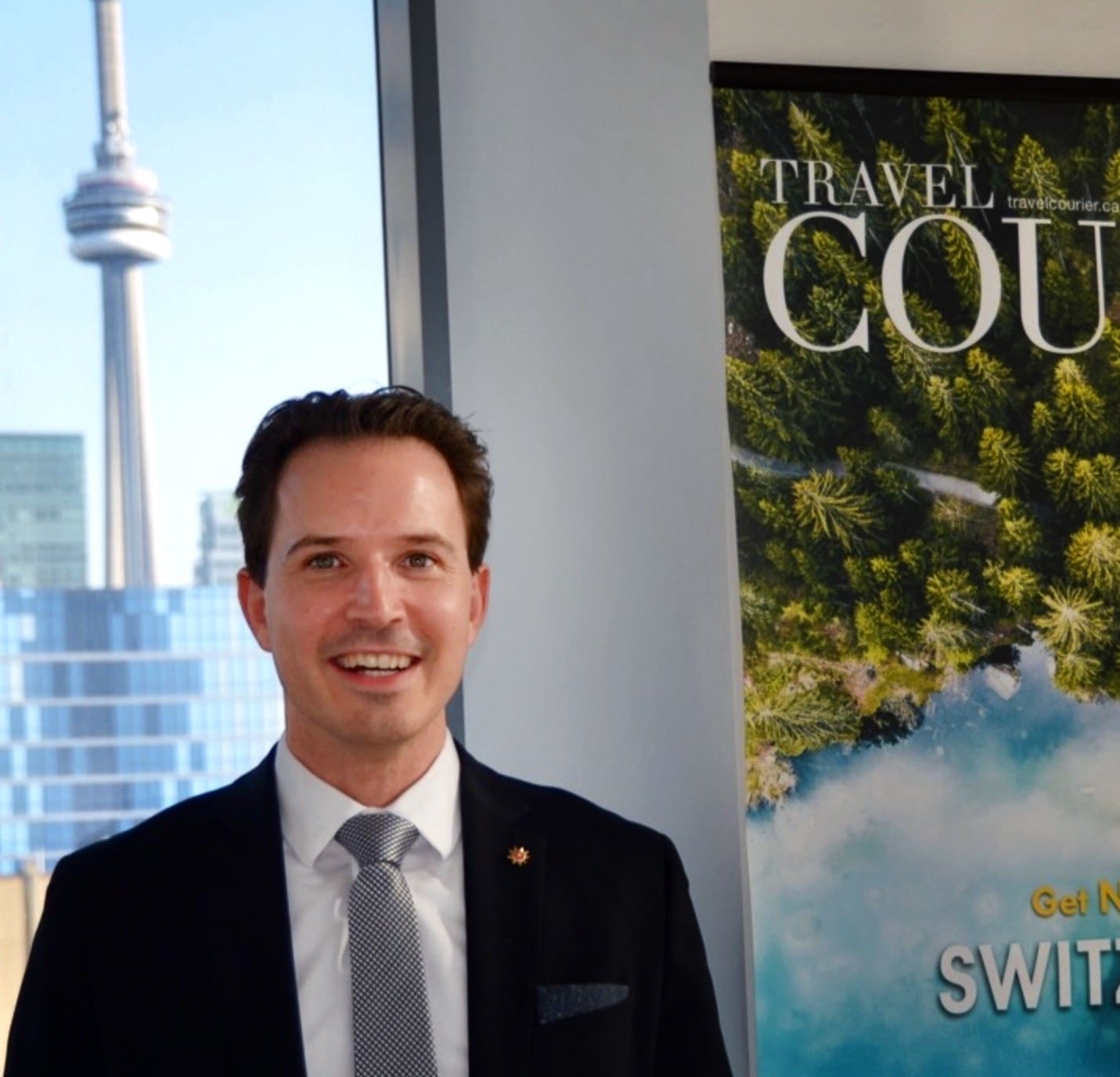
Although there is no date yet for when Canadian travellers can visit, Pascal Prinz, Director Canada & Trade Manager Central USA for Switzerland Tourism, says its a positive signal that the destination is opening for tourism from Europe and the UK as of June 15.
As a new normal emerges, he foresees sustainable travel paving the way forward.
“We have to respect nature more and live in a responsible co-existence to also allow future generations to experience the wonders of our beautiful planet,” Prinz tells Travel Courier. “In my opinion, we as an industry have to walk the talk and put a real focus on responsible and conscious travel. Switzerland will continue to take its role as a leader in sustainable travel very seriously.”
When COVID-19 hit, he says the organization was gearing up to launch the “You need Switzerland” campaign in Canada, but shifted from the sales-oriented marketing to “Dream now – Travel later” to express their empathy until a date is know for when Canadians can vacation in Switzerland again.
“We had to pause, learn, be agile and flexible, adapt and postpone our activities to this fall,” he says. “Our research shows that adventure travel, luxury and FIT are the first segments who will travel again. We focus on these segments, which have already been crucial for us before COVID-19.”
Looking ahead, he says they are working full steam on recovery activities for October and points out that partnerships with valued travel advisors and tour operators are vital for success.
“We continue to heavily invest in them,” he says. “Currently, we have adapted to the new reality and started offering virtual sales calls. We can’t just be idle until this crisis is over. We have to be proactive and help our tour operators and travel advisors to meet with Swiss suppliers. They need to adapt to the new product and sales needs. We also train them on the strong safety procedures in Swiss destinations.”
As for challenges on the road ahead, he points to helping travellers feel confident to travel again.

Photo courtesy: Switzerland Tourism swiss-image.ch/Ernst Christen.
“At the same time, after months of being stuck at home, Canadians are stir-crazy and can’t wait to be outside and see the world again. The second one is not having no clear date when borders will open between Canada and Europe,” he adds, noting that the Canadian Association of Tour Operators (CATO) has provided great leadership during this time. “Thirdly, travel is such an interconnected industry. All elements in the supply chain depend on each other. Therefore, coordination is crucial.”
Switzerland Tourism’s latest research shows that in a first step, there is a strong interest in domestic travel. In terms of needs, «safety», «few people», «hygiene/cleanliness», «safety measures against COVID-19», «COVID-19 case numbers» ranked highest.
“People are looking for open space and lots of nature where physical distancing can easily be practiced while enjoying a great vacation with family or friends,” he says. “Trust, human connection and value will be our new post-COVID 19 guiding realities. I’m convinced that travel advisors and tour operators are more important than ever. They will be the leading force in the post-COVID 19 world. With so much uncertainty, advisor’s expertise and connections are crucial in helping put future travellers at ease and stimulate our industry’s recovery. Advisors help their clients when they are in need. New flexible reservation policies give travellers peace of mind to adapt their plans if needed or if they get stuck abroad. This is a game changer. If travellers book directly online, they are simply on their own.”
In order to come out stronger on the other side, he recommends that agents keep in touch with their clients and utilize this time to do more training.
“Continue to make them dream of future travels. We have seen huge increases in our Switzerland Travel Academy e-learning program and our webinars,” he says. “A saying I learned during this crisis goes ‘a friend in need is a friend indeed.’ We have received lots of support from our great industry partners in Canada and Switzerland. On behalf of our team, I would like to express our gratitude and excitement to make Canadian’s travel dreams come true again soon.”
Paul Gauger
Senior Vice President, The Americas, VisitBritain
We expect to see a rise in more consumers using a travel agent when booking. Many consumers are re-evaluating how they book travel, acknowledging that human contact, a voice and opinion of experienced, trusted travel professionals is more important than ever.”

When international travel resumes, Paul Gauger, Senior Vice President, The Americas for VisitBritain, expects to see an increase in the number of consumers using a travel agent.
“Many consumers are re-evaluating how they book travel, acknowledging that human contact, a voice and opinion of experienced, trusted travel professionals is more important than ever,” Gauger tells Travel Courier. “When restrictions are lifted, tourism will be as welcoming, innovative and adaptable as ever and adjust to whatever the new normal looks like.”
In order to move forward successfully, Gauger says regaining consumer confidence in travelling will be important.
“Consumer confidence is key, recognizing that health concerns are a primary issue,” he says. “We will be working in close partnership with airlines and tour operators to ensure that guidelines are in place in — and keep travel agents updated on those guidelines.”
One of the challenges for Great Britain is that it’s entering the first phases of reopening for tourism (as of June 8th with a 14-day quarantine period) as many other European destinations open up for travel within Europe.
“However, as we work toward reopening, we are working across the industry and with the UK Government to ensure that tourism can recover as quickly as possible once restrictions are lifted,” he says. “We are working with the industry to develop a common industry standard (reassurance quality mark) that would provide a ‘ring of confidence’ for tourism businesses, attractions and destinations as well as reassurance to visitors that businesses have clear processes in place when restrictions are lifted.”
Throughout this time, the destination is supporting travel industry partners to ensure they have access to VisitBritain’s recovery approach and campaign information as it develops, and are in the process of preparing a series of webinars for travel trade to provide the latest guidance and information on travel to Britain and keep them updated as hotels and attractions reopen.
“Canadian travellers can be assured of a very warm British welcome when the time comes to travel again,” he says. “They will return to experience our world-famous culture, rich heritage, vibrant cities, beautiful landscapes and coastal walks.”
Looking longer-term, he says a ‘Tourism Sector Deal,’ previously announced by the UK Government, includes developing the concept of Tourism Zones, to drive visitor numbers across the country, extend the tourism season and to build the local tourism offer across destinations, tackling local barriers to tourism growth.
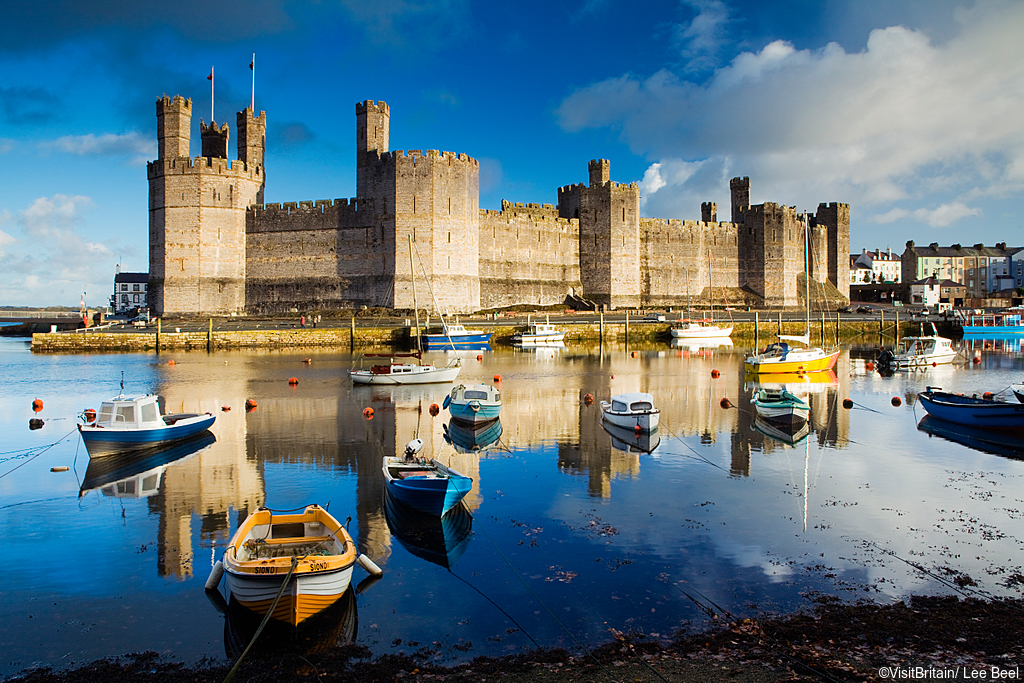
Caernarfon castle overlooking the Menai straits, Wales.
“So, we will also be working to use the sector deal outcomes to support the industry longer-term for a new era of travel, to drive innovation and boost the UK’s profile as a destination, and tourism’s contribution to the wider recovery,” he says.
While discussions are ongoing with the industry, the way forward could include businesses completing a free online assessment to check they are taking the necessary steps to adhere to the official guidelines and be provided with a quality mark they could use and a certificate that recognizes they have gone through the process. https://www.visitbritain.org/new-industry-standard-development-response-covid-19
With tourism being an extremely competitive global industry, he predicts that destinations will all be working hard for visitors once travel resumes.
“VisitBritain is keeping Britain front of mind globally through our social channels including @lovegreatbritain and www.VisitBritain.com, sharing the best of our culture and virtual visitor attractions from film and TV to music, heritage, literature, gardens and British food and drink,” he says. “We are focussing on five key areas: advising the UK Government; acting as the interface between the tourism industry and the Government to ensure that the economic impacts on the tourism industry are understood and that policy matches the scale of the response needed; industry support and communication and recovery preparation, as well as our own staff welfare and business continuity.”
Mélanie Paul-Hus
Director, Canada, Atout France
We believe travel agents and tour operators will be sought after once international travel bounces back. They will be the best source of information to advise travellers on the safest destinations, the type of activities most fitting the clients risk level and expectation. Agents will also be able to present new insurance products benefits and adapt purchase protections to the changing situation.”

When thinking about the future of travel post COVID-19, Mélanie Paul-Hus, Director of Atout France in Canada, sees the trade playing a pivotal role.
“We believe travel agents and tour operators will be sought after once international travel bounces back,” Paul-Hus tells Travel Courier. “They will be the best source of information to advise travellers on the safest destinations, the type of activities most fitting the clients risk level and expectation. Agents will also be able to present new insurance products benefits and adapt purchase protections to the changing situation.”
Overall, she envisions sustainability being of bigger importance for travellers.
“We expect clients to want to explore more backcountry,” she says. “Before long, sustainable choices will be a priority for destinations and travellers alike, to avoid over developing on natural territories. A new balance between local and international clients is to be expected.”
In order to regain consumer confidence in travelling, the destination is focusing on maintaining the highest possible standards across sanitary, infrastructure, activities and events.
“The situation is entirely new and acting in haste with reopening the destination is not France’s plan,” she says, adding that one of the biggest challenges will be working to grow the connectivity between Canada and France back to its pre-COVID-19 levels.
After the pandemic started, Atout France shifted strategies by promoting virtual experiences and armchair travel inspirations and is concentrating on domestic travel during the initial stages of reopening.
“We look forward to a lift of the non essential travel ban by the Canadian government and until then we are working on a series of Facebook live happening for travel agents and consumers as well,” she adds. “A more thorough action plan is to be deployed in the fall.”
 In the meantime, she encourages agents to develop their knowledge of France and European destinations in order to be the reference for when international travel is on again.
In the meantime, she encourages agents to develop their knowledge of France and European destinations in order to be the reference for when international travel is on again.
“Making agreements with DMCs before the reopening would also in our opinion help agents cater to the needs of individual FIT travellers which we imagine will be in greater numbers until a vaccine is in place,” she says. “The possibly smaller marketplace at the beginning requires every industry stakeholder to act with great precaution and develop more personalized services to match each traveller’s comfort level. Technology also gains presence in the booking process in order to schedule visits, restaurants, etc. Agents will need to provide guidance for higher end clients and develop tools to teach clients how to manage their itinerary.”
In addition, Caroline Leboucher, CEO of Atout France, says they are waiting with anticipation for confirmation that the internal EU borders will reopen on June 15.
“Professionals working within the French tourism industry have worked alongside the French Government to put together health protocols which will guarantee the safety of their employees and visitors, and encourage best practices,” says Leboucher. “Beaches, countryside and mountain areas where people go walking or practise outdoor sports, culture and heritage sites, restaurants and tourist accommodation are all ready to welcome tourists again, who should, we hope, be able to enjoy the French way of life, enjoy a morning café crème and croissant on a terrace, share a French meal with friends, or meet up and enjoy some tasty food and wine together.”

















